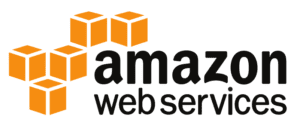The results are in and the winners from yesterday are: Xcode, Android Studio, Jenkins, and AWS. Here is your updated Bracket.
[separator type=”” size=”” icon=””]
We are entering the second round of Mobile Madness 2016. The pairings are getting a bit more interesting as we move towards the finals. Welcome to the sweet 16!
Steve Ballmer vs Steve Jobs
We love so much about both of the tech giants, but only one can win today in the battle of the Steves. Who’s it going to be?

Steve Jobs brought us so many things, and in many ways LunarLincoln wouldn’t exist without the App Store. Forgetting that Jobs was famously against having an App Store, we still owe him credit for so many incredible inventions. Plus, he was a pretty inspirational guy:
[responsive_video link=”https://www.youtube.com/watch?v=UF8uR6Z6KLc”]
And then we have Steve Ballmer. The man. The legend. I mean, if you can get Bill Gates to dance on stage to celebrate the Windows 95 launch, what can’t you do?
[responsive_video link=”https://www.youtube.com/watch?v=XKVJoBGq-7g”]
So which Steve will take home today’s prize? Answer the twitter poll here
[separator type=”” size=”” icon=””]
Jony Ive vs Felix Krause
Up next we’ve got industrial design genius Jony Ive vs newcomer and epic craftsman Felix Krause.


Jony Ive has brought us so many beautiful pieces of hardware over the years and has been instrumental in the Apple we all know and love today. He also inspired one of our favorite parody videos about the new Macbook One:
[responsive_video link=”https://www.youtube.com/watch?v=KHZ8ek-6ccc”]
Felix Krause on the other hand has saved us countless hours over the past few months with his amazing suite of Fastlane tools. We used to true through mundane development tasks, but now we can automate all the things. Here he is speaking about Fastlane:
[responsive_video link=”https://www.youtube.com/watch?v=ZAnHxP5dnuc”]
So who would get your vote? Chamfered edges or developer automation made simple? Answer the twitter poll here
[separator type=”” size=”” icon=””]
Xcode vs Android Studio
And here we have a classic showdown. The most popular IDE for iOS vs the most popular IDE for Android. If you’re a mobile developer, odds are you spend almost all of your time working in one or both of these programs. They can be your best friend or your worst enemy.
![]()
If you’re a mobile developer, you probably have very strong opinions about each of these. Xcode, like most things Apple, tries to make things simple, but as developers we often play the role of power user. We love storyboards, playgrounds, and the speed of deploying a new app to the simulator. On the flip side, using Xcode always feels like you’re one step away from disaster, and frequent crashes and restarts will wear on you after a while. This erratic behavior has even lead some developers to think Xcode is a sentient being. Android Studio provides a great environment to craft your Android masterpieces. Google’s constantly putting out beta versions of new releases so developers have more tools at their disposal as fast as possible. While Android Studio lacks some features like a robust visual layout editor and proper Android simulation (not emulation, which is what Google currently offers, and is terrible), it makes up for it with its great refactoring tools and the ability to create gorgeous layouts with simple XML (I dare you to edit your XIBs in XML!). Plus, Android Studio is an extension of IntelliJ which has tons of great support from its developers and the community. You may use and love both programs, but only one can reign supreme!
If you’re a mobile developer, where would you rather spend your time? Answer the twitter poll here
[separator type=”” size=”” icon=””]
Jenkins vs AWS


In our final match of the day we’ve got Jenkins vs AWS.
Though not directly related, both Jenkins and AWS provide invaluable services to developers. Jenkins provides a simple yet extensive interface for continuous integration which keeps dev shops constantly aware that their tests need to be updated (because a failing test clearly means the test is wrong, not the app). Amazon Web Services is perhaps the leading cloud hosting platform and their fame is nothing short of awesome. Developers can deploy directly to their Elastic Beanstalk instances with a single command and integrating your apps with their hosted storage (S3) and database options (RDS, DynamoDB, etc.) is well documented and incredibly useful. It’s hard not to love both of these services for their essential contributions to shops big and small, but you can only vote for one!





